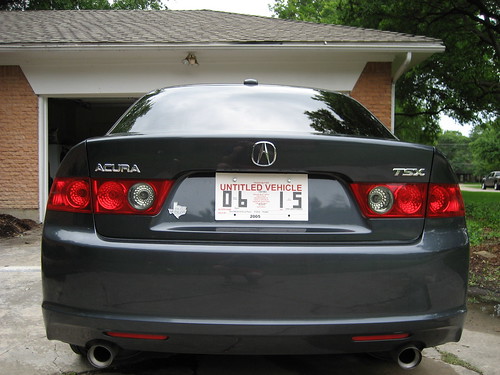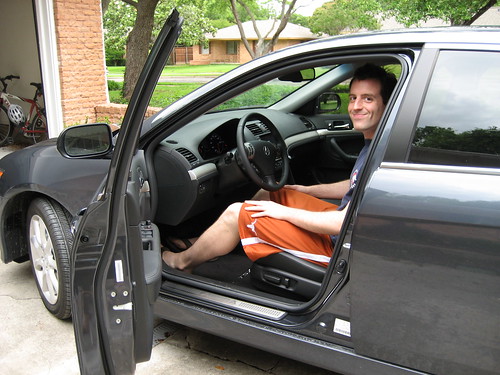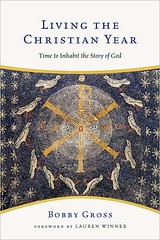
So, we all know about the stories of Michael Vick and dogfighting. More informants have come out, both from those within his posse and the dogfighting world itself. It has been claimed that Vick is known as a "heavyweight," betting over $40,000 a fight on dogs he breeds. It's also claimed that dogfighting is a subculture within professional sports. Clinton Porter claimed that dogfighting is more common than people think and said that he knows many locations of such events. His statement was that people should mind their own business, and simply said that it's Vick's dog: he can do whatever he wants with it. After saying that it was no big deal, Porter was informed that in reality, it is a felony. Protis' response: "It can't be that bad of a crime." I think what is missing in the reporting of this story, however, is one simple note: the county's prosecuting attorney is named Gerald G. Poindexter. Yeah, Poindexter. Obviously, these are heinous crimes that I'm pretty sure Vick is involved in (his family history doesn't speak very well), and if he is guilty, I hope he gets necessary justice and doesn't just walk because of his premier status. The icing on the cake however, is that Michael Vick could be taken down by a guy named Poindexter. Simply brilliant.

Baylor University President Ermitus Herbert H. Reynolds passed away last Friday; services are currently taking place. I chose this picture because he's holding a then-bear cub named Chance, whom I used to bottle-feed around that same age and watched grow up into a terror of an animal...just pretty feisty, to say the least. Anyway, Dr. Reynolds was a brilliant psychologist who made historical contributions to not only Baylor, but the scientific community, including NASA. For those Baylor students who don't know, Dr. Reyholds was integral in the Space Race, where he was posted by the U.S. Space Program in New Mexico as the director of research, specifically working on Project Mercury, Gemini, and Apollo for NASA. Actually, he used to have on campus (it might still be there) one of the space suits that the monkeys wore when they were testing them in space. Crazy stuff. Anyway, besides being a 33rd degree Mason (which really creeps me out) and to a little more liberal than many are comfortable with concerning Biblical issues, he was a great scholar and leader for my beloved university.
Reynolds was born March 20, 1930, in Frankston, Texas.
He earned his bachelor's degree from Trinity University in 1952 and completed four years active duty in the U.S. Air Force. After service as a member of a technical advisory group to the Japanese Air Self Defense Force, he came to Baylor in 1956. In 1958, he completed his master's degree in psychology, followed by his doctorate in experimental psychology (neuroscience) and clinical psychology in 1961. During this time he also served as an assistant professor of aerospace studies (1956-59) and a teaching fellow in psychology (1958-61). He remained on active duty in the Air Force during those years to prepare to join the faculty of the Air Force Academy (USAF Institute of Technology sponsorship).
Reynolds had been assigned to the faculty of the Air Force Academy in 1961, but he was diverted to the Aeromedical Research Laboratories at Alamogordo, N.M., where he became deputy commander and director of research. The laboratory was involved in unique research activities associated with the U.S. space program, specifically the Project Mercury, Gemini and Apollo NASA endeavors.
In the midst of producing some 50 publications, Reynolds also served as an adjunct faculty member of both Baylor and the University of New Mexico. After serving several months as the establishing commander and director of plans for the Air Force Human Resources Laboratory, he retired from the Air Force in November 1968, at age 38, having completed 20 years of active duty with four decorations for meritorious service.
In March 1969, Reynolds joined Baylor as executive vice president and, on June 1, 1981, became the university's 11th president. In 1986, he was named one of America's 100 most effective chief executive officers in a study funded by the Exxon Education Foundation of the 3,400 presidents of American colleges and universities. More than $180 million in renovated and new facilities were added at Baylor during his presidency, endowment quadrupled, the total net assets of the university tripled and there was no increase in indebtedness.
In the first five years of his administration, there were a number of special academic initiatives, among them the establishment of the Distinguished Visiting Professors Program and the creation of the Robert Foster Cherry Great Teacher Awards, which provide recognition of some of the world's finest teachers and brings them to Baylor for specific teaching and lecture roles. Others included the designation of Baylor professors as Master Teachers, the highest honor granted to Baylor faculty members, which began under Reynolds in 1982; the designation of 12 Distinguished Professors and the creation of "In-Residence" faculty positions for faculty with unique talents and backgrounds, such as Diplomat-in-Residence, Writer-in-Residence and Organist-in-Residence, with wide latitude in their professorial and professional activities.
By the early 1990s while Reynolds was president, around 15 percent of Baylor's faculty were receiving release time from one or more courses, mini-sabbaticals for six to 12 weeks, or full length sabbaticals from December to August or May to January to carry out research and publication or to engage in other creative pursuits. Teaching remained the highest priority under Reynolds, but there were many opportunities for research and scholarly endeavors. Reynolds also led in the creation of a new university governance system and greatly enhanced the personnel benefits to an amount equal to about 25 percent of an individual's salary.
New facilities under Reynolds, made possible by the gifts of many generous donors, included the Hooper-Schaefer Fine Arts Center and Lewis Art Building, Wiethorn Information Center, Zachariah and Elizabeth Bobo Baptist Student Center, Carlile Geology Research Building, Blume Conference Center, Cashion Academic Center and the Law Advocacy Center. In addition to the new structures, a number of older facilities were partially or completely renovated and the Gov. Bill and Vara Daniel Historic Village was added as the outdoor arm of the Strecker Museum, the oldest museum in Texas.
During Reynolds' presidency, educational and service opportunities for Baylor students were enhanced, including the initiation of "Steppin' Out," which began in 1985 and quickly grew into one of the largest community service projects on an American college campus. Through this program, which still continues to this day, thousands of members of the Baylor family join hands to perform special tasks for those in need in the community. Student organizations were honored each year for their leadership and service contributions in a special ceremony. Baylor debaters took the Southwest Conference crown every year and captured the American Forensics Association National Championships in 1987 and 1989.
Major new facilities added during the 1986-91 period included the Lev and Ella Prichard Athletic Dining Hall; the Follett Building, which provides space for multilevel parking, an expansive bookstore and offices for the Cashier and Student Financial Aid; the Ferrell Center, a 10,000-seat domed special-events facility, which was opened with a visit by then-President Ronald Reagan; the Robert M. and Louise Rogers Engineering and Computer Science Building; the Learning Resource Center at the School of Nursing in Dallas; the Gregory Memorial Garden at the lower level of Moody Library; the co-generation temperature control system designed to reduce utilities cost campus wide; and the Floyd Casey Stadium renovation and expansion, including the construction of the Carl and Thelma Casey Athletic Complex. Nearly all the remaining buildings that had not undergone major renovation in a number of years were remodeled. In addition, the telephone system was significantly enhanced, the computerization of academic and administrative operations was greatly expanded, and Baylor became one of the 25 top "wired" colleges and universities in the nation.
By the end of 1991, Reynolds' first decade as president, 649 new courses and 23 new degree programs had been added to meet the needs of the student body which had increased by 16 percent. Enrollment was approaching 12,000 students, and approximately 10 percent of the student body were preparing for careers in ministry.
Over his last four years as president, Reynolds continued along the path which he had set for guiding Baylor to new heights. The Jesse H. Jones Library and the Glennis McCrary Music Building were added in 1993; the F.L. Carroll Chapel and Library Building, the fourth building constructed on the Waco campus, was restored; and an eight-story office building, the Clifton Robinson Tower, was acquired to provide much-needed space for academic, administrative and student needs. With the support and generosity of special friends of the university, Reynolds worked with the Board of Regents to establish George W. Truett Theological Seminary with its first class of 51 men and women beginning classes the fall of 1994. On Feb. 22, 2002, while Reynolds served as President Emeritus, Baylor officially dedicated the Baugh-Reynolds Campus of Truett Seminary, named after Reynolds and great friend of the university John Baugh.
In collaboration with the faculty, Reynolds continued to create new curriculum opportunities, including several master's and doctoral programs. During this time, Baylor was ranked 72nd out of 235 doctoral-degree granting universities by U.S.News & World Report. Under Reynolds, a total of 757 National Merit Scholars were enrolled and the university ranked in the top one percent of the nation's educational institutions in the number of Scholars enrolling each year. One such scholar was named a Rhodes Scholar in 1989, the third in the history of the institution. From June 1981 through the May 1995 graduation, some 37,500 students received their Baylor degrees, and 86,000 alumni and students resided in all 50 states and 137 foreign countries. The 100,000th graduate of Baylor was honored at the May 1995 Commencement.
Reynolds retired from the Baylor presidency on May 31, 1995, and became Chancellor June 1, 1995. He retired as Chancellor on May 31, 2000, and became President Emeritus June 1, 2000. He received the coveted Baylor Founders Medal in 2000, the Scottish Rite Stephen F. Austin Award in 2000, the prestigious Independent Colleges and Universities of Texas Founders Medal in 2001, and the Association of Fundraising Professionals Lifetime Achievement Award in 2002. In 2003 he was named the Texas Baptist Elder Statesman. Generous benefactors of the university, the Reynolds were inducted into the Baylor University Medallion Fellowship with the Pat Neff medallion in fall 2006.
Reynolds was past chair of the 850-presidential member National Association of Independent Colleges and Universities, as well as the 40 Independent Colleges and Universities of Texas (ICUT). He was chair of the Texas Commission on Judicial Efficiency from 1995-97 and was a member of the Texas Select Committee on Higher Education. In addition, he served as an emeritus trustee of the Baylor College of Medicine, a director of Community Bank and Trust of Waco, and a deacon and former deacon chairman of the First Baptist Church of Waco. He was a 33rd degree Mason, a member of numerous honor, professional and civic organizations, and was also a licensed psychologist.
Reynolds was listed in Who's Who in America, Who's Who in the South and Southwest, Who's Who in Science, Who's Who in Education and was named a Distinguished Alumnus of both Baylor and Trinity. In 1980 he was appointed the first University Professor at Baylor (Psychology/Neuroscience, Organizational Behavior and Higher Education). He was a member of Phi Beta Kappa and held the honorary Doctor of Science (Sc.D.) degree from both the Baylor College of Dentistry and Seinan Gakuin University in Japan, as well as an honorary Doctor of Philosophy (Ph.D.) from Yonok College in Thailand. From 1994-97 he was a Visiting Scholar/Fellow of Wolfson College, Cambridge University. Through the years he gave numerous invited addresses and formal presentations.
Reynolds is survived by his wife, Joy (BA '74), whom he married
I'm not going to get into the issue of the bill, because I think everyone agrees that it's just a huge messed up problem now that has no obvious and easy solution (though I will say that I am a fan of it, considering alternative options). Instead, I just want to speak of this one issue: are illegal immigrants criminals? Or, maybe we can phrase it like this (which should reveal the obvious answer): is it illegal to be an illegal immigrant? Uh, yeah.
Especially in Texas, this is a huge issue that has had a massive impact after years of turning a blind eye to this illegal activity. One of the most obvious consequences has been the bankrupting and deterioration of our public school system. Public schools are flooded by kids whose families are here illegally. These schools take in these children and educate them, sticking the bill to taxpaying citizens. As such, a few families are having to pay for many, as the illegal families freely receive the benefits taxpayers...well, actually pay for. There are so many such children in our school system, that money is simply spread too thin. As for the classrooms themselves, so many public schools have become more concerned with providing social care and free breakfasts than reading Homer, Locke, or Voltaire. I've tutored at schools dominated by children of illegal immigrants where it seems the whole time is catching up these kids on math and reading. You'll have a 6th grade classroom where they are teaching on a 3rd grade level because the teachers have to teach to the lowest common denominator. This gives the children of citizens almost no chance to succeed unless they are motivated enough to look outside of the school system. Now, think of medical and health care. Anyone can go to Parkland and the tax payers pay for their care. However, the more illegal immigrants that use free or subsidized health care, the more strain this causes on the state budget and taxpayers. This carries over to things we often take for granted, such as paying for parks, police and fire departments, road maintenance, libraries, and so many other things where all use but not all pay for. The more disparity between freeloaders and those who pay for them, the more strained our economy and state will become...and the more our taxes increase and our children are hurt.
So, some might say that I'm being insensitive. Well, I'd love to be sensitive, but this is a serious issue with real consequences, and there's no easy solution. The fact is illegal immigrants have a powerful influence on our economy, especially within the construction and building industry. However, I don't buy anyone who honestly believes their presence is not criminal. Let's be very clear: this is not a racial conversation or issue. Not at all. It's a legal issue. Anyone who has stayed in a foreign country for a decent amount of time understands this. When I studied at Universiteit Maastricht, I had to procure a student visa. When that visa had expired, had I chosen to stay in the country without valid documentation, I would have been there illegally and faced the consequence of deportation. I knew that. Everyone knows that. If you want to go live and work in a foreign country, you get what's called a work visa. If you don't, you are living and working there illegally and subject to deportation. Again, we all know that. Here's the kicker though - it's still not racial. Again, not at all. This is obvious. It's simply economics and protecting citizens. If I decided to stay and live in Maastricht legally, I would have had, like in most of Europe, excellent health care and social and civil benefits and protection, including an almost completely subsidized education. If, however, I decided to live in Europe "under the radar" and used their subsidized medical care, I would know in my heart that I was cheating the system - I was stealing when going to the doctor or taking the prescription drugs. If I sent my kids to school and the university for free, yet I had not payed any taxes, I again would know I was stealing. It's really that simple. I would love to move to some land and take advantage for the country's benefits without paying for them; however, it would literally be criminal of me. And, in reality, I wouldn't want to, because I would know the whole time it was wrong. Thus, I get so frustrated when I see these people one television acting so defiantly like the own the place. No, they've just been living off those who do. It's theft. It's criminal. That's why we call it illegal.
So what now? Again, I'm not sure. I have heard that the process to citizenship is too difficult and expensive. I really don't know, but if that's the case, then we should look at it. I would say, however, that if I find something difficult to achieve, I don't give up and just steal it...so I still put responsibility for the actions of those choosing to steal from our taxpayers. To be honest, however, our government has turned a blind eye to illegal immigration for so long, much because of the cheap labor provided. As such, we have made our own bed and should now somewhat be forced to lie in it. Personally, I'm a fan of the bill, but to be sure this is a difficult problem to correct.

Tuesday, Democrats blocked a bill to require showing photo ID when voting. Now to me, this bill is a no-brainer. In today's society, you are supposed to be asked for a photo ID when putting a cup of coffee or a CD on your credit card. How more important is voting than a latte? We should be protecting our votes, as they are the basis of our society. Democrats, however, claim that such a requirement is nothing more than "a return to the Jim Crow - voter suppression tactics of the past," and that the bill "is actually designed to suppress turnout by black and Hispanic voters." If that's not the biggest load of bunk. The issue is simple. There have been countless stories of Democrats promoting voter fraud through having individuals vote in multiple districts, registering illegal immigrants, and even registering dead people, horses, and dogs. The blocking of this bill is simply an attempt to keep up such activity. Oh, and the other argument you hear is that more voting fraud occurs through proxy, so we should not have a bill focusing on ensuring the identity of those who vote in the booth. If that isn't stupid, I don't know what is. Yes, we obviously then need to tackle proxy voting fraud, but this doesn't then me that you vote down a bill to protect traditional voting when it is available and already passed through the House. The logic, or lack thereof, is shocking. I mean, who buys this junk? Oh, but I forgot that Democrats don't want to limit voting to the citizen voting only in his district.
They way I understand it, there are two things we're really protecting here. The first is protecting votes from illegal immigrants. Now, I'm not sure how often illegal immigrants try to vote, but when they so highly populate Texas, it is an area in need of safeguarding. If I vote as a citizen who pays taxes and contributes to the money pool which pays for the benefits of living within the state, be it educational, health, security, administrative, or even keeping up parks and whatever else our taxes pay for, but then have that vote canceled out by someone who is not a citizen, then my vote is nullified. Protecting against voting fraud is protecting citizen voter rights.
Secondly, we're protecting votes from fraudulent registrations for the sake of multiple voting. My vote should count as much as everyone else's. We have a democratic representative government, a republic which is entrusted to listen to the people. In this system, everyone, regardless of race, age (18+), or socio-economic status, should have the same weight carried in their vote. So again, if I cast a vote honestly but another votes in two districts or casts a ballot with a registration of someone deceased, then my vote is nullified. Protecting against voter fraud is protecting voter equality.
To be fair, however, let's look at what sort of identification will satisfy under the bill and see if Democrats are right in that it is merely "a bill to intimidate blacks and Hispanics," as I heard on quoted the news. If the required identification is impossible to achieve or the process in receiving such ID is simply not worth the casting of a ballot, then this is obviously not a good bill to pass. This list comes from Boyd L. Richie, Chairman of the Texas Democratic Party. You may find the list from the Democratic Party website here.
"PS - In HB 218, here are the only acceptable forms of ID.
HB 218 would amend the list of acceptable forms of photo identification to include:
1. driver's license or personal identification card issued by the Department of Public Safety (DPS) that has not expired or expired within two years of the date of presentation;
2. U.S. military identification card containing the person's photograph;
3. valid employee identification card containing the person's photograph;
4. U.S. citizenship certificate that contains the person's photograph;
5. U.S. passport issued to the person;
6. Student identification card issued by a public or private institution of higher education located in Texas that contains the person's photograph (note: high school ID is not included);
7. license to carry a concealed handgun issued by DPS.
HB 218 would amend the list of acceptable forms of non-photo identification to include:
1. Copy of a current utility bill, bank statement, government check, paycheck, or other government document that shows the name and address of the voter;
2. official mail addressed to the person by name from a governmental entity;
3. certified copy of a birth certificate or other acceptable document confirming birth;
4. U.S. citizenship papers;
5. original or certified copy of a person's marriage license or divorce decree;
6. Court records of a person's adoption or name or sex change;
7. identification card issued by a governmental entity for the purpose of obtaining public benefits, including veteran's benefits, Medicaid, or Medicare;
8. temporary driving permit issued to the person by DPS;
9. pilot's license issued to the person by an authorized federal agency;
10. library card, containing the person's name, issued by a public library located in this state;
11. hunting or fishing license issued to the person by the Parks and Wildlife Department."
As you will notice, the options are quite exhaustive, yet Mr. Richie says "here are the ONLY acceptable forms of ID." Laughable. Honestly, is this a problem for people who really exist and live legally in the district they're attempting to vote? Even the driver's license can be two years old. I can't buy a beer without a valid Photo ID. To be clear, I'm not some crazy Republican...not at all. I mean, I definitely am when it comes to taxes and economic issues, but I'm not at all when it comes to gun control, environmental responsibility, and such. So, don't think I'm just railing on Democrats because they're Democrats. No. I'm railing on them because they're being retardedly stupid.
As a side note, I would like to say that it's bull how Democrats have been terming themselves as "progressive" as opposed to "conservative" for Republicans. First off, I think it's unfair to term Republicans as "conservative" and "Democrats" as liberal anyway. Really, it's "Big Government Control" versus "Small Government Control." That's the issue. Secondly, while good marketing, it's misleading to term yourself as the "progressive" party, which automatically insinuates that your opposition is the "caveman" party. Again, it's good marketing, but it's crap.
Greetings,
Thank you once again for your support of the SaveNetRadio campaign. As you know, the future of internet radio is in serious jeopardy. Thanks to all your letters and calls to Congressional representatives the “Internet Radio Equality Act ", H.R. 2060, has been co-sponsored by over 70 Representatives in just 2 short weeks!
Now internet radio needs your help again: Due to the amazing momentum of the Internet Radio Equality Act in the House of Representatives, Senators Ron Wyden of Oregon and Sam Brownback of Kansas have introduced a companion bill in the Senate, S. 1353, also named “The Internet Radio Equality Act.”
We ask that you take a moment to now call your Senators to ask them to co-sponsor S. 1353, The Internet Radio Equality Act, introduced by Senators Ron Wyden of Oregon and Sam Brownback of Kansas.
In addition, if you have not called your representative in the House yet, we ask that you make this call as well to ask your representative to co-sponsor H.R. 2060, The Internet Radio Equality Act, introduced by Rep. Jay Inslee of Washington.
To find the phone numbers for your Senators and for your Congressional representative, as well as talking points for the calls, please visit http://capwiz.com/saveinternetradio/home/ and enter your zip code.
As you can see from the speed at which the House bill is picking up co-sponsors, your phone calls are an extremely effective way to pressure your representatives in Congress to lend their support to internet radio.Your opinion matters to your representatives, and it matters to us. Without your support these bills could not have been introduced and without your continued support they cannot be passed.
Please visit SaveNetRadio.org to continue following the fight to Save Internet Radio.
Thank you,The SaveNetRadio Coalition
an american tragedy: misleading pitcher volume.
Published by matthew @ 20:16 | | permalink & email
On Sunday I went bowling with the guys from my community group, and Eric got us a pitcher of Sam Adams. As we started pouring what looked like a normal pitcher full of beer, we noticed that there was a huge cylinder in the middle that took up about about a fourth of available volume. Seriously, this picture is very flattering to the size of this obstruction - it was big. After a little research, I've discovered that these could be used to keep the beer cold longer (although, really good beer...that which is not brewed by Miller, Coors, Bud, or anything Mexican, which all tastes like horse urine...shouldn't be served super cold, but that's for another day) - anyway, the point is that I don't think this is why they were doing it. I think they were just trying to be misleading in the output of their pitchers.

I LOVE BlackBerry. It will be really hard to get me to go to another type of phone. This is exponentially better than my old Palm Treo...like, not even close. I just used the Treo for the Palm apps, so I now for the first time have email and internet on my phone. I will never go back without it. At first I thought this would be helpful, but it has quickly transformed much of my communication and granted me greatly increased efficiency. To be true, it is because of my profession and need to stay connected to my clients and their needs that I see this as so essential, but now I honestly do see it as just that for me - essential. Good night, now I know what I've been missing! The phone itself, the Pearl (or 8100 for those technical types), is awesome - so small, yet so powerful! The "Suretype" keyboard is fluid - I really do like it. I thought leaving the full QWERTY keyboard would be annoying, but this version is really intuitive and smart. I highly...oh so highly...recommend this phone. Oh, and no, I didn't buy it from Joseph. (I bought it from Ruben, who Rocks. Go see him at the 75 & Park Ln store if you need anything - he's the man. We even had some beers afterwards...seriously).
...Oh, and if you're on the BlackBerry network and I don't know it, let me know so I can add you to my BlackBerry messenger.

twitter.
recently.
- The Blog has moved - Please join me.
- The Blog 3.1
- New Post @ Anthological Prolegomena.
- New Post @ Anthological Prolegomena.
- New Post @ Anthological Prolegomena.
- Merry Christmas!
- New Post @ Anthological Prolegomena.
- new post @ anthological prolegomena.
- New Post @ Anthological Prolegomena.
- New Post @ Anthological Prolegomena.
comments.
matthew.
photo.
local favorites.
friends.
- Bizzaro World (Liz)
- blake burris (Blake)
- candidly katie (Katie)
- dandeelines (Dan & Diedra)
- drank the water (Veronica)
- dropping swords (John B.)
- e blinks (Erynn)
- glades of light (Patrick)
- grace & peace (Dan)
- grand larseny (Daniel)
- hanging with the hammacks (Adam & Sara)
- heytyson (Tyson)
- hi i am matt (Matt)
- Idaho Heart (Mike)
- It's Chinese to Me (John R.)
- Jay's Blog (Jay)
- John McGee Live (John McG.)
- Let All The Earth... (Trey)
- Love on the Internet (Creth)
- Ms Rory in the Heart of Texas (The Badrina Family)
- Mission and the Church (Will)
- Mudd between my toes (Ryan)
- Performing the Faith (Ben)
- Press the Star Key (Jerod)
- Prof's Soapbox (Dr. Wallace)
- Some Kind of Ride (Kimberly)
- SonnyD.com (Sonny D)
- stumbling through the the post-blog world (Ben)
- The Boudreaus (Stephen & Shelley)
- The Crum Family (Will & Jenny)
- The Dodd Blog (Kate & Ryan)
- The Mathews Family (Mark)
- The Iles (Angie)
- The Myers (Josh & Amanda)
- Theological Ruminator (John Mark)
- The SMFL Blog (Commish)
- The Williams Family (Travis & Amy)
- The Youngs (Mary)
- Trading Tacos (Nick)
- us (Jonny5)
- watermark west (Michael)
site nav.
old conversations.
- 09.2004
- 12.2004
- 03.2005
- 04.2005
- 05.2005
- 08.2005
- 11.2005
- 05.2006
- 07.2006
- 08.2006
- 09.2006
- 10.2006
- 11.2006
- 12.2006
- 01.2007
- 02.2007
- 03.2007
- 04.2007
- 05.2007
- 06.2007
- 07.2007
- 08.2007
- 09.2007
- 10.2007
- 11.2007
- 12.2007
- 01.2008
- 02.2008
- 03.2008
- 04.2008
- 05.2008
- 06.2008
- 07.2008
- 08.2008
- 09.2008
- 10.2008
- 11.2008
- 12.2008
- 01.2009
- 02.2009
- 03.2009
- 04.2009
- 05.2009
- 06.2009
- 07.2009
- 08.2009
- 09.2009
- 10.2009
- 11.2009
- 12.2009
- 01.2010
- 06.2010























